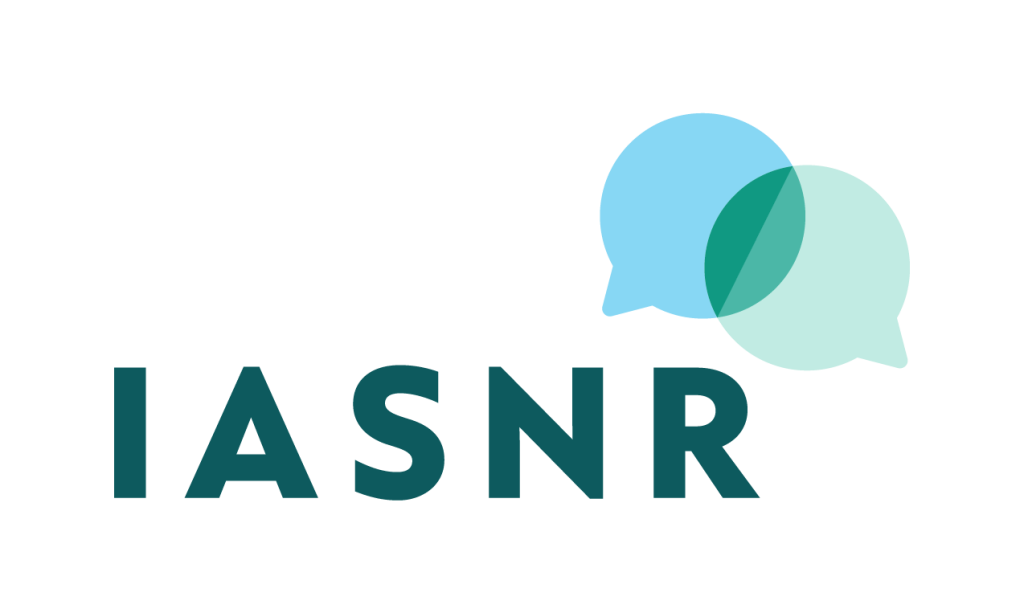Society & Natural Resources – The Official Journal of IASNR
2023 Impact Factor 2.2
Description of Types of Articles Published in Society & Natural Resources
Society & Natural Resources (SNR) is the journal for the International Association for Society and Natural Resources (IASNR). SNR publishes 12 issues per year on cutting edge social science research that advances understanding of the interaction between society and natural resources. Social science research is extensive and comes from a number of disciplines, including sociology, psychology, political science, communications, planning, education, and anthropology. We welcome research from all of these disciplines and interdisciplinary social science research that transcends the boundaries of any single social science discipline. We define natural resources broadly to include water, air, wildlife, fisheries, forests, natural lands, urban ecosystems, and intensively managed lands. While we welcome all papers that fit within this broad scope, we especially welcome papers in the following four important and broad areas in the field:
- Protected area management and governance
- Stakeholder analysis; and engagement and consultation; deliberation processes; social learning; environmental governance; conflict resolution; social impact assessment
- Theoretical frameworks, epistemological issues, and methodological perspectives
- Multiscalar character of social implications of natural resource management
We publish five categories of articles: research articles, practice-based knowledge, policy reviews and analyses, comments and rejoinders, and research notes. We also accept solicited book reviews. For further information, please click here and also visit the Taylor & Francis site.
All submitted manuscripts are subject to initial appraisal by the Editors-in-Chief, and, if found suitable for further consideration, to peer review by independent, anonymous expert referees. All peer review is double blind and submission is online via ScholarOne Manuscripts.
Print ISSN: 0894-1920
Online ISSN: 1521-0723
Rabel J. Burdge & Donald R. Field Outstanding Article Award
Society & Natural Resources organizes a committee to review nominations and select a winner for the Rabel J. Burdge and Donald R. Field Outstanding Article Award, for best general research article published in each volume of the journal. The award recipient receives a US $500 cash prize,* sponsored by the journal’s publisher, Taylor & Francis, and is recognized at the IASNR Conference (formerly ISSRM) in June each year; and through the journal and related websites.
Selection criteria include:
- Innovative and interesting topic
- Meaningful contribution to the study of society and natural resources
- Engagement with prior scholarship
- Quality of conceptual development
- Solid, well-articulated methodology and effective use of evidence, as applicable
- Coherent and persuasive argument
- Clarity and general excellence in writing
An article that promises to be influential over time will be preferred.
Nominations: The selection committee will consider all general research articles published in each volume of the journal. Independent nominations from the same pool of eligible articles are welcome and encouraged.** For more information on nominations and deadlines please email [email protected].
* If more than one author, the cash award will be divided equally among the authors.
** Self-nominations will not be accepted. Current editors of the journal are ineligible to receive this award.
Guidelines for Submission of Special Issue Proposals to Society & Natural Resources
Society and Natural Resources (SNR) strives to publish one special issue each year, though there is no definite maximum or minimum the number of special issues in each annual volume. Previous special issues have focused on issues such as sustainable agriculture politics and policy, water conflicts, and the relationships between the fields of environmental sociology and natural resource sociology.
The Editors-in-Chief will occasionally issue calls for special issues. If you are interested in receiving emails when these calls are issues, please contact [email protected].
Co-Editors-in-Chief
Beginning July 1, 2020, the Journal of Society & Natural Resources journal has been turned over to a new editorial team.
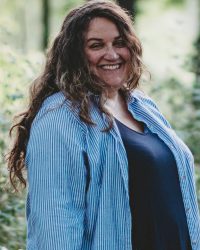
Kristin Floress
I gave my first professional talk at the 2004 ISSRM in Keystone, Colorado, and go to the Symposium every year funding (and travel approvals) allow. IASNR has been my primary professional organization since I was a graduate student, and, to my delight, my first article from my dissertation was published in SNR. I have served IASNR in a number of roles over the years, including Best Student Paper competition reviewer, ISSRM scientific advisory committee member, and IASNR council member. I am currently a Research Social Scientist with the USDA Forest Service’s Northern Research Station, but have had jobs ranging from associate professor to seller of the world’s highest donuts atop Pikes Peak in Colorado Springs, Colorado. Editing is one of my favorite things to do, and I am certain there is a parallel universe where I am a science fiction book editor. Another favorite professional activity of mine is working with graduate students, thus I am looking forward to starting discussions with the Student Advisory Committee about ways we can work together with students on writing and publishing their research. I live in a suburb of Chicago, Illinois with my husband, two young boys, and a sneaky dog.
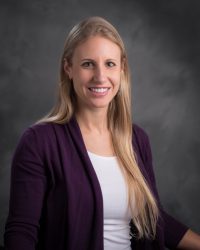
Emily S. Huff
I first attended the 2013 ISSRM in Estes Park, Colorado as a student member. After years of attending the Society of American Foresters National Convention, I was thrilled to find a home where social science was appreciated and understood. Some of the student members I met then are now my professional colleagues at universities, agencies, and NGOs across the globe. I am currently an Assistant Professor at Michigan State University where I hold a Research, Teaching, and Extension appointment in the Department of Forestry. Before this position, I was a Research Forester with the USDA Forest Service’s Northern Research Station, working on the National Woodland Owner Survey. One of my greatest professional achievements was writing and singing an advertising jingle for Herrells, a famed ice cream shop in western Massachusetts where I grew up. I am looking forward to serving SNR and supporting increased student engagement with the peer review process. I split my time between Lansing and (near) Marquette, Michigan with my husband, son, and two dogs.
Rabel J. Burdge and Donald R. Field launched the journal, Societies & Natural Resources (SNR) with Taylor & Francis in 1988.
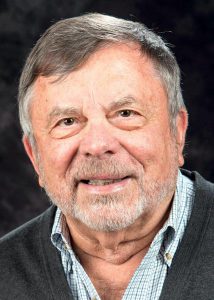 Rabel J. Burdge is an Emeritus Professor at the University of Illinois at Urbana-Champaign where he held tenure appointments from 1976 to 1996 in the Institute for Environmental Studies and the Departments of Agricultural and Consumer Economics (Rural Sociology), Leisure Studies (now Recreation, Sport and Tourism) and Urban and Regional Planning.
Rabel J. Burdge is an Emeritus Professor at the University of Illinois at Urbana-Champaign where he held tenure appointments from 1976 to 1996 in the Institute for Environmental Studies and the Departments of Agricultural and Consumer Economics (Rural Sociology), Leisure Studies (now Recreation, Sport and Tourism) and Urban and Regional Planning.
He was a Visiting Professor in the Department of Sociology and Huxley College of the Environment at Western Washington University in Bellingham, where he taught courses on environmental sociology and social impact assessment from 1996-2012.
Educated at Penn State (Ph.D.-1965) and Ohio State University (B.S.-1959 and M.S.-1961), Burdge has also served on the faculties of the University of Kentucky (Lexington), 1968-1976; and the U.S. Air Force Academy in Colorado Springs, 1965-68 (active military duty with final rank of Captain).
Since 1986 he has been an Honorary Professor in the School of Australian Environmental Studies, Griffith University, Brisbane, Australia where he received the visiting scholar award. In 1984 he was a Resident Professor, Department of Western Sociology, University of Wageningen, the Agricultural University of The Netherlands. Burdge spent the spring term of 2002 as a Visiting Professor in the Department of Planning and Landscape and the Environmental Impact Assessment (EIA) Centre, University of Manchester in the United Kingdom.
In 2003, Burdge edited a double issue of the international journal, Impact Assessment and Project Appraisal, Volume 21 (2&3) titled, “The Practice of Social Impact Assessment” and completed the 3rd edition of his two SIA textbooks: The Concepts, Process and Methods of Social Impact Assessment (translated and published in Chinese in 2011, ISBN: 978-7-5111-0612-4) and A Community Guide to Social Impact Assessment, both published in 2004 (later revised in 2015) by the Social Ecology Press of the International Association for Society and Natural Resources (IASNR).
He has written over 200 scholarly articles and papers on social change in rural communities, natural resource and environmental issues, needs assessment surveys, the use of public involvement in the resource decision making process, the social and economic impacts of development, the sitting of hazardous and conventional waste facilities, as well as natural resource recreation management.
In addition to the above books, Burdge is author of Coping with Change: an Interdisciplinary
Assessment of the Lake Shelbyville Reservoir, and co-author of Social Change in Rural Societies: A Rural Sociology Textbook, 2nd and 3rd Editions. He is former editor of the Journal of Leisure Research and founding co-editor of both Leisure Sciences: an Interdisciplinary Journal and Society and Natural Resources: An International Journal.
From 1994-2000 Burdge was Executive Director and Treasurer of the Rural Sociological Society (RSS) and Editor of The Rural Sociologist. He was the 1988 recipient of the RSS Natural Resources Research Award for contributions to the sociology of natural resources. In August of 1996, he was named Distinguished Rural Sociologist, the highest honor given by the Rural Sociological Society.
In 1990 he was elected the President of the International Association for Impact Assessment (IAIA) and in 1994 received from IAIA the “Rose-Hulman Institute of Technology Award” for outstanding contributions to the field of impact assessment. He gave the keynote address for the 26th annual meeting (June, 2007) of the International Association for Impact Assessment in Seoul, Korea and it was later published as Rabel J Burdge, “The Focus of Impact Assessment (And IAIA) Must Now Shift to Global Climate Change!!” Environmental Impact Assessment Review, 28 (8 November, 2008) pp. 618-622.
Recent consultancies include: 2001–preparation of the Social Impact Assessment manual for the Bureau of Reclamation, US Department of Interior; 2002–international expert for UNEP-Malaysia on the preparation of SIA guidelines; 2003–preparation of Principles and Guidelines for Social Impact Assessment for the US National Marine Fisheries Service (NOAA).
Annually, Burdge gives training courses on social impact assessment for such professional organizations as the International Association for Impact Assessment (IAIA, where he is a certified instructor) and the International Association for Society and Natural Resources (IASNR) where he received the Lifetime Achievement Award, and the Rural Sociological Society (RSS). He has also given training courses on social impact assessment for a variety of private sector companies and organizations.
Recent social impact assessment (SIA) projects include; the assessment of the building of housing for low-income Hispanic farm workers in a lower middle class area; the sitting of a large deep water port facility on Native America land; a proposal to build a multiple-housing recreation facility inside a present urban area on 85 acres of pristine forested land and the baseline study for a proposed diamond mine in Aboriginal Territory of Canada’s Northwest Territory.
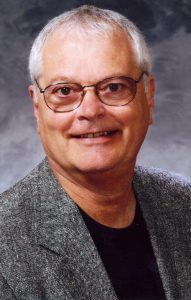 Early Saturday morning, April 7, 2018, University of Wisconsin Professor Emeritus Donald Reed Field passed away. He is survived by his wife of 55 years, Nancy H. Field, children Peggy, Andrew, and Donald Jr., six grandchildren, and a large extended family. Beyond the joys these family members brought to Nan and Don, they are a lasting signal of the core traits this couple instilled in each person they came into contact with – honesty, love, commitment, faith, and will to move forward. Thankfully, Don’s ability to impart such traits was not restricted to bloodlines – it extended to a legion of students, colleagues, and indirect progeny. All who studied with, worked alongside, or otherwise were blessed to interact with him felt his grace, and profited from his wisdom.
Early Saturday morning, April 7, 2018, University of Wisconsin Professor Emeritus Donald Reed Field passed away. He is survived by his wife of 55 years, Nancy H. Field, children Peggy, Andrew, and Donald Jr., six grandchildren, and a large extended family. Beyond the joys these family members brought to Nan and Don, they are a lasting signal of the core traits this couple instilled in each person they came into contact with – honesty, love, commitment, faith, and will to move forward. Thankfully, Don’s ability to impart such traits was not restricted to bloodlines – it extended to a legion of students, colleagues, and indirect progeny. All who studied with, worked alongside, or otherwise were blessed to interact with him felt his grace, and profited from his wisdom.
Professor Field served in many capacities and roles throughout his distinguished career, including as an Assistant Professor at South Dakota State University and then at the University of Washington (where he was promoted through the ranks to Professor), Chief Scientist Pacific Northwest Region of the National Park Service (where he also served as the agency’s first Senior Scientist in Sociology), and Professor of Forest Resource Management at Oregon State University. He spent the last 23 years of his career at the University of Wisconsin where he served as Associate Dean of the College of Agriculture and Life Sciences, Director of the School of Natural Resources, and Professor of Rural Sociology and Forest and Wildlife Ecology. Taken together, these positions provide a penetrating glimpse into Don’s creative life-space – he traversed the intersections between the natural sciences and social sciences as had few before him. More importantly, he erected some of the first bridges to creating a transdisciplinary framework for addressing the many wicked problems assailing the natural resource-human interface.
Don Field’s work in natural resource sociology is foundational. His research findings appeared in many of the leading journals published today, and along with his numerous books, book chapters, and research monographs remain core to current work in the areas of leisure studies, rural sociology, and natural resource social science. The enduring importance of his contributions is in part reflected by the numerous awards he received over the course of his career, including a Fulbright Fellowship to Griffith University in Brisbane, Australia, the Department of Interior’s Meritorious Service Award, the Theodore and Franklin Roosevelt Award for Conservation and Recreation Research from the National Recreation and Park Association, the George Hartzog Award from the National Park Service, the Lifetime Achievement Award from the International Association for Society and Natural Resources, the Award of Merit from the Natural Resources Research Group of the Rural Sociological Society, the Distinguished Rural Sociologist Award from the Rural Sociological Society, the Outstanding Alumnus Award from Penn State, and election as a Fellow of the Academy of Leisure Sciences.
Field’s level of engagement with and contributions to the creation of professional networks and organizations is unparalleled. He served as an elected Council member, Secretary, and Vice-President with the Rural Sociological Society. His creativity and sense of purpose led him to actively pursue the development of new outlets and organizations that brought natural resource and social scientists together. He served for six years as co-editor of the recreation resource-based scholarly journal Leisure Sciences. He organized the first International Symposium on Society and Resource Management in 1986, and continued to play a lead role in nurturing and organizing the ISSRM symposia for the next quarter-century. Based on research papers from the first Symposium he launched Society and Natural Resources in 1988, and continued as the journal’s co-editor in chief until 2003. In 2001 he led the creation of a new professional association, the International Association for Society and Natural Resources, and served as IASNR’s founding Executive Director from 2002 to 2005.
Don Field’s life was devoted to bringing people with different agendas together to address the pressing issues facing our nations’ natural resources. He infused a passion among all he worked with to add to and apply social science knowledge in ways that would enhance both natural resource conditions and social well-being. He will never be far from our hearts, or our minds.
